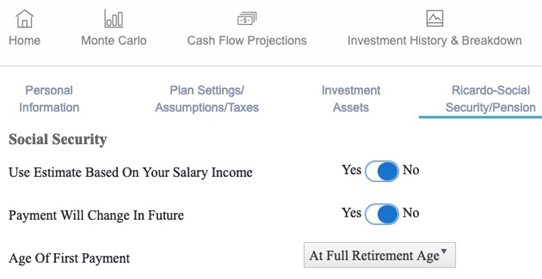Key Points
- Plenty of people retire from full-time work but then keep working part time.
- Those people often wonder if they're jeopardizing their Social Security benefits in some way by working.
- In general, you can work and receive Social Security benefits, but you need to be aware of a few things if you're planning to go this route.
Social Security was never meant to cover full expenses in retirement.
Hopefully that's not a news flash to you, but it is for some people once they get to their 50s or so and start thinking about retirement. They might have had some idea that Social Security wouldn't cover everything, but they believed it would cover more than it actually does. (And, relatedly, they also might think Medicare covers 100% of their medical expenses once they get to Medicare age. Not true.)
So for people without much in the way of investment assets who will be depending on Social Security in retirement, going back to work, at least part time, is very common. In fact, it's also quite common for people who don't really need to go back to work. They might just want to keep a toe in the water or give their days some structure--and the extra money is just gravy.
So the question often comes up: Can I work and take Social Security benefits at the same time?
The short answer is yes. But, as with all things personal-finance related, there are some caveats.
There's Retirement Age, and Then There's the Age When You Retire
The first thing to figure out is your full retirement age. That's not to be confused with your age when you walk out of your office with a box full of your belongings for the last time. Full retirement age is a Social Security Administration term that refers to the age you have to be to be eligible for your full retirement benefits.
As of this writing, full retirement age is 66 years and two months for those born in 1955. It increases to 67 for those born in 1960 and later. This table spells out full retirement ages by year of birth.
Now, you can take Social Security benefits before your full retirement age--as early as age 62 in fact. Your benefits will be reduced permanently if you do, so it's best to wait until full retirement age, but there are sometimes reasons to do it (a big one being a lack of investment assets to help cover expenses).
However, if you take your benefits early, and you work and earn above a certain threshold, there is one big thing you should be aware of.
The Social Security Administration will reduce your benefits if (1) you are under full retirement age, and (2) earn more than their annual earnings limit. In 2022, the most you can earn before that penalty kicks in is $19,560.
Here's an example. Say you are under full retirement age and taking your benefits of $1,000 per month, or $12,000 for the year. You're also doing some consulting work on the side, and end up making $25,560 from that (and, yes, we just matched up those last three digits to the last three of the penalty amount to make this calculation a bit easier).
You'll be docked $1 in benefits for every $2 you earn over the limit. That would look like this:
Earnings: $25,560
Social Security Benefits: $12,000
Earnings Over The Limit (2022): $25,560 - $19,560 = $6,000
Benefit Reduction: $3,000 (which is calculated by taking that $6,000 figure and dividing it by two, since benefits are reduced by $1 for every $2 earned over the limit)
There is a lot more to the regulations, which you can read about here, at the administration's web site.
You can use the WealthTrace Planner to model various Social Security scenarios and see if it makes sense to take Social Security early, at the full retirement age, or to delay taking benefits. You can even see how this would impact your withdrawals from your retirement accounts in the future.

It All Comes Out In The Wash Though
The penalty arguably makes a case for simply not retiring until you can afford to take Social Security benefits at full retirement age instead of taking it as soon as you can. (That's in addition to the more well-known reason to wait, which is that you essentially get 8% more in benefits if you wait.)
But in fact, you'll get it back if you live long enough. That is, once you get to full retirement age, the administration will boost your benefits by the amount they were withheld. Spouses (or survivors who receive benefits for one reason or another) will not receive those increased benefits, however.
Just for the record: Once you get to full retirement age, you can go to town with extra earnings. No limits, and no benefit reductions. In fact, if that consulting side gig turns out to be more lucrative than you anticipated, the administration will recalculate (bump up) your benefits.
Whatever route you decide to go, be sure to take into account the big picture--your spending needs, other sources of income, big one-time expenses you're anticipating, and so on.
Do you want to run what-if scenarios on your Social Security benefits? Sign up for a free trial of WealthTrace today and start your retirement plan.